13 Famous Lord Shiva Temples To Visit In India
By: Priyanka Maheshwari Mon, 11 Dec 2023 10:40:39
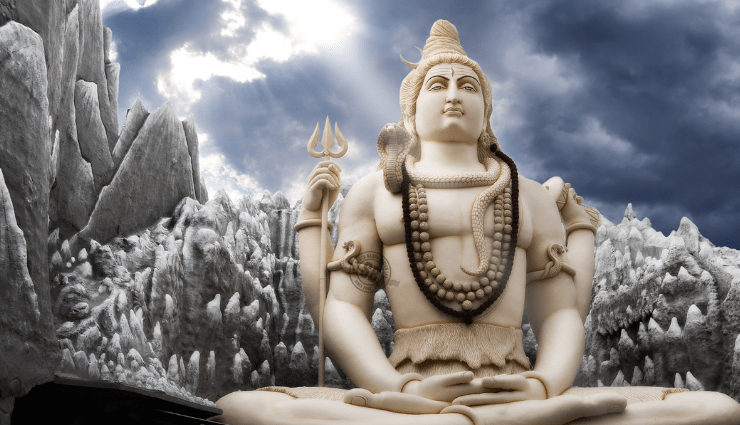
Lord Shiva, revered under various epithets such as The Destroyer, the Transformer, Mahadev, and Bholenath, is hailed by myriad names from his devoted followers. As a part of the Hindu divine trinity, comprising Lord Vishnu and Lord Brahma, he embodies a fundamental aspect of divinity. Described as an all-knowing Yogi residing on Mount Kailash with his consort Parvati and their two sons, Ganesha and Kartikeya, Shiva is the patron deity of Yoga and the arts. Symbolized by a third eye on his forehead, the serpent Vasuki adorning his neck, the River Ganga flowing from his matted tresses, and a crescent moon embellishing it, Shiva also wields the Damru and Trishul. Worship often takes the form of the Shiva Linga.
India hosts twelve renowned Shiva temples, recognized as the Jyotirlingas of Lord Shiva. These Jyotirlingas are considered radiant manifestations created by Lord Shiva himself. As individuals ascend to higher levels of transcendence, they may witness these Jyotirlingas as columns of fire piercing through the earth. The legends of Lord Shiva intertwine with the Shakti Peethas of Devi Sati (Shakti). The unwavering faith of devotees in Lord Shiva serves as a testament to his miraculous deeds and legendary tales.
To delve deeper into our understanding, let's explore the most prominent Shiva temples in India, each possessing unique characteristics that contribute to their significance.
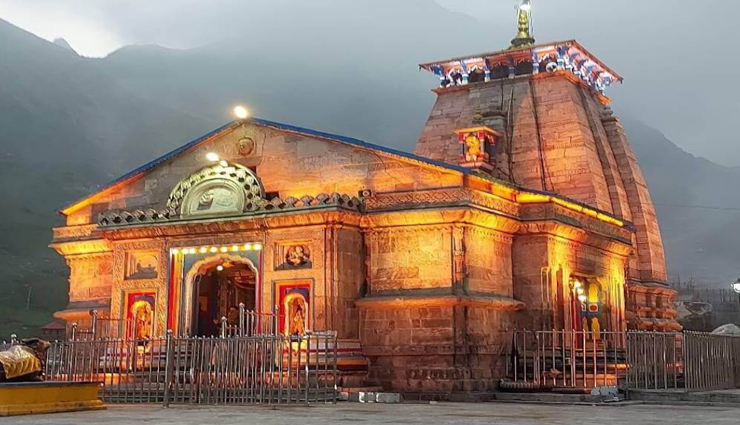
# Kedarnath Temple, Uttarakhand
Situated in the Garhwal Himalayan Range near the banks of the Mandakini River, the Kedarnath Temple dedicated to Lord Shiva is a revered site. Integral to the sacred pilgrimage circuits of Hindus, Char Dham, the Kedarnath Temple holds a distinguished position as one of the twelve jyotirlingas of Lord Shiva.
Access to the temple is granted for six months, from April to November (Akshaya Tritiya to Kartik Poornima), owing to challenging weather conditions. During the winter season, the deity is ceremoniously transferred to Ukhimath, where worship continues for the remaining six months. To reach the Kedarnath Temple, pilgrims must embark on a 14-kilometer trek from Gaurikund.
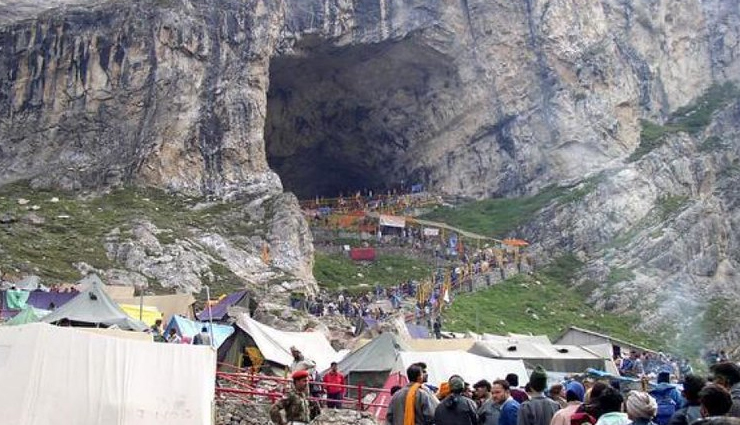
# Amarnath Temple, Kashmir
Located at an elevation of 3888 meters in Kashmir, the Amarnath cave shrine stands amidst snow-covered surroundings for a substantial part of the year. This sacred site holds great significance for devotees of Lord Shiva, drawing pilgrims as an essential destination.
Annually, as the temple becomes accessible, thousands of devotees undertake a challenging journey, traversing mountainous terrains to reach the sacred site. The linga within the temple is a stalagmite, formed by the freezing of water drops that drip from the cave's floor.
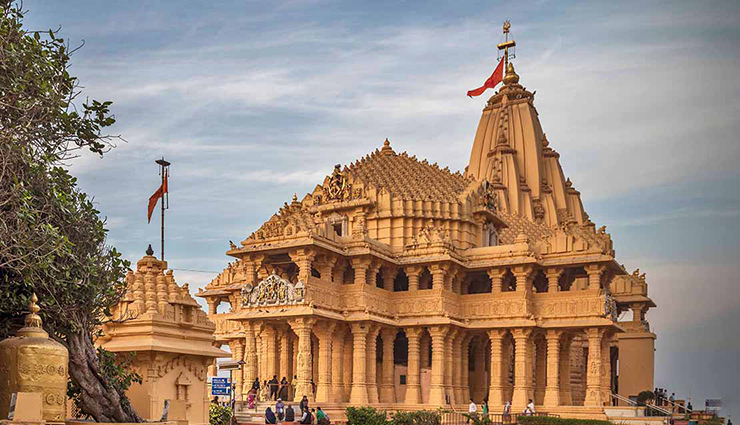
# Somnath Temple, Gujarat
Despite being destroyed and reconstructed multiple times, the unwavering faith of pilgrims in the Somnath Temple remains intact. This temple, counted among the twelve jyotirlingas of Lord Shiva, has a history dating back to a period before 649 CE. The current structure, constructed in 1947, reflects the Chalukya style of architecture. According to legends, this location is believed to be where Lord Krishna concluded his earthly lila and departed for his celestial abode.
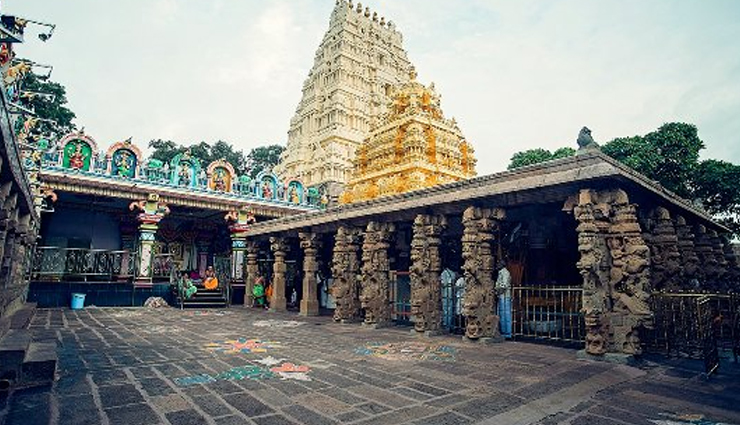
# Mallikarjuna Swamy Temple, Andhra Pradesh
Another among the twelve jyotirlingas, Mallikarjuna Swamy, dates back to more than six centuries ago. It is also recognized as one of the 275 Paadal Petra Sthala, celebrated in the verses of Saiva Nayanars. According to belief, Vrishbha, the carrier of Lord Shiva, undertook penance at this site, leading to the divine manifestation of Lord Shiva and Goddess Parvati. Additionally, the splendid temple was constructed by the Vijayanagar Empire, showcasing their distinctive architectural style. Surrounding Mallikarjuna Swamy, there are several other temples dedicated to Hindu deities such as Nataraja, Nandi, and Sahasralinga.
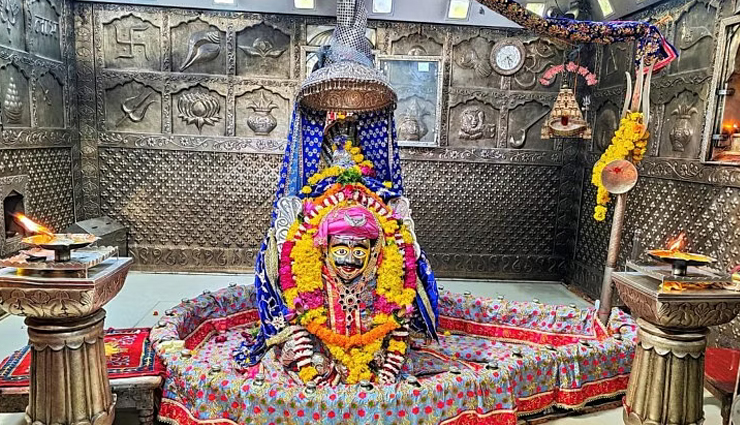
# Mahakaleshwar Temple, Ujjain
The Mahakaleshwar Temple is also counted among the twelve jyotirlingas of Lord Shiva, underscoring its immense significance. Lord Shiva is venerated in the form of a Shivalinga, believed to be a swayambu (self-emerged). The original temple was destroyed by Sultan Shas-ud-din Iltutmish, and the current structure was erected in 1736 AD. Additionally, Sri Mahakaleshwar is recognized as one of the 18 Maha Shakti Peethas, marking the locations where different parts of Sati Devi's body are said to have fallen.
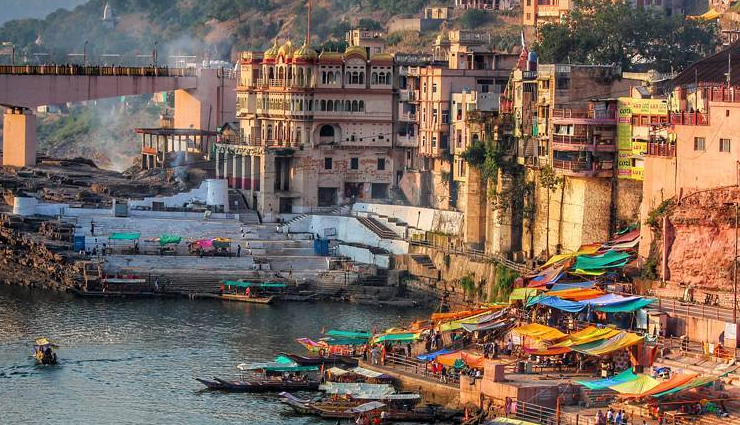
# Omkareshwar Temple, Madhya Pradesh
Situated on an island that bears a resemblance to the "Om" (ॐ) symbol, the Omkareshwar Temple is positioned on the Narmada River, near its confluence with the Kaveri. This temple holds a distinguished place among the twelve jyotirlingas of Lord Shiva. While already a significant pilgrimage destination for Hindus, the influx of visitors notably increases during Mahashivratri.
At this sacred site, Lord Shiva is venerated in the form of a Shivalinga, showcasing a captivating fusion of human and natural artistry. Numerous other revered temples surround the Omkareshwar Temple, including the Satmatrika Temple, Siddhnath Temple, and Kajal Rani Cave.
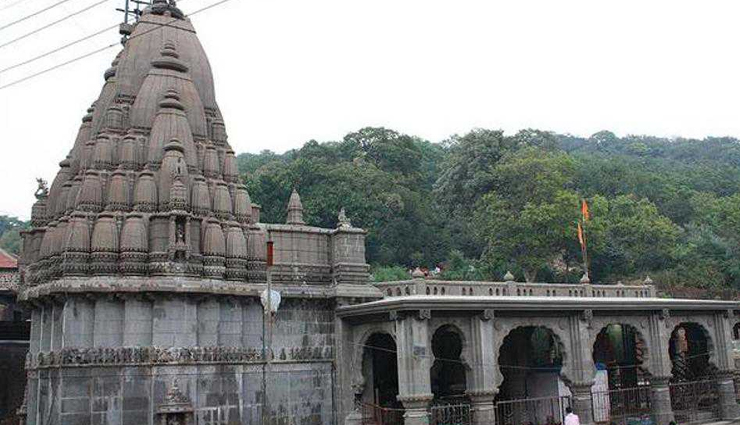
# Bhimashankar Temple, Maharashtra
Bhimashankar, the origin of the Bhima River, stands as a jyotirlinga temple dedicated to Lord Shiva. Dating back to the 13th century, the temple boasts the Nagara style of architecture, showcasing the excellence and dedication of ancient Vishwakarma sculptors.
In close proximity, there is a shrine dedicated to Kamalaja, an incarnation of Goddess Parvati. Situated in the Sahyadri Mountain Range, the temple offers a breathtaking view of the pristine natural surroundings.
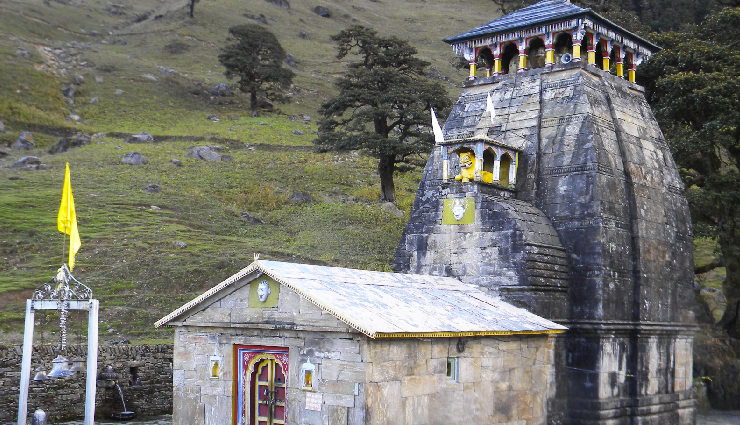
# Madhyamaheshwar Temple, Uttarakhand
The hundredth chapter of Kashi Khand makes reference to the Madhyameshwar Temple, prescribing that devotees partake in a ritualistic dip in Mandakini Teerth and offer worship at the Madhyameshwar Temple. Historical records indicate that Madhyameshwar, as implied by its name, was originally positioned at the center of Kashi, encompassing a vast area. However, as time progressed, Kashi underwent contraction, and consequently, the temple is no longer situated at the center. The Kurma Purana also includes mention of this temple.
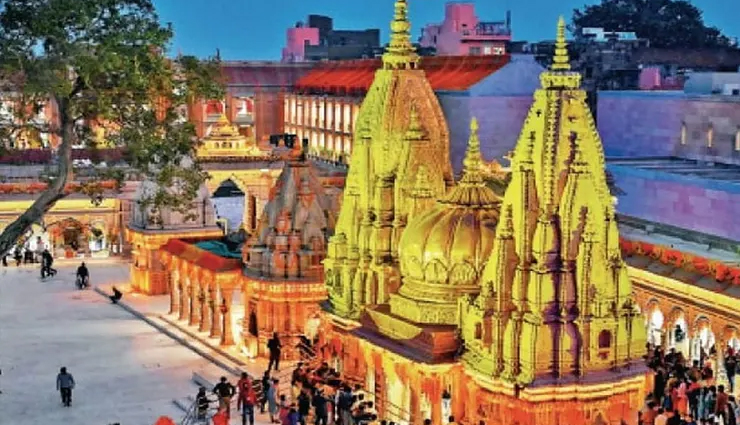
# Kashi Vishwanath Temple, Varanasi
Situated in Varanasi, one of the oldest and holiest cities globally, Kashi Vishwanath is a jyotirlinga temple dedicated to the main deity Vishwanatha or Vishweshwara, signifying the ruler of the universe. Similar to the Somnath Temple, Kashi Vishwanath has undergone numerous cycles of destruction and reconstruction. The most recent demolition occurred during the reign of Aurangzeb when the Gyanvapi mosque was commissioned on the site. However, the present-day structure was erected in 1780 under the patronage of the Maratha monarch, Ahilya Bai Holkar.
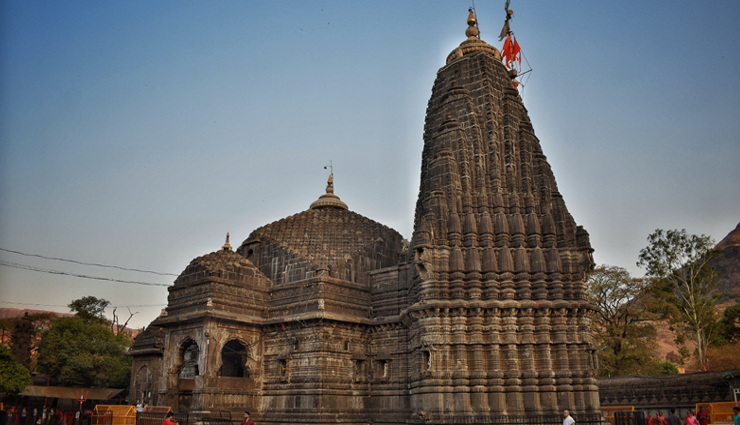
# Trimbakeshwar Temple, Maharashtra
Trimbakeshwar Temple, one of the twelve jyotirlingas dedicated to Lord Shiva, holds the distinction of being the source of the Godavari River, the longest river on the Indian peninsula. The primary deity of the temple is a Shivalinga, which is gradually eroding, and many interpret this erosion as symbolic of the nature of human society.
Another remarkable feature of this temple is its three faces representing Lord Brahma, Lord Rudra, and Lord Vishnu. Adorning the gold mask of the Tridev is a jeweled crown embedded with emeralds, diamonds, and other precious stones, believed to date back to the time of the Pandavas.
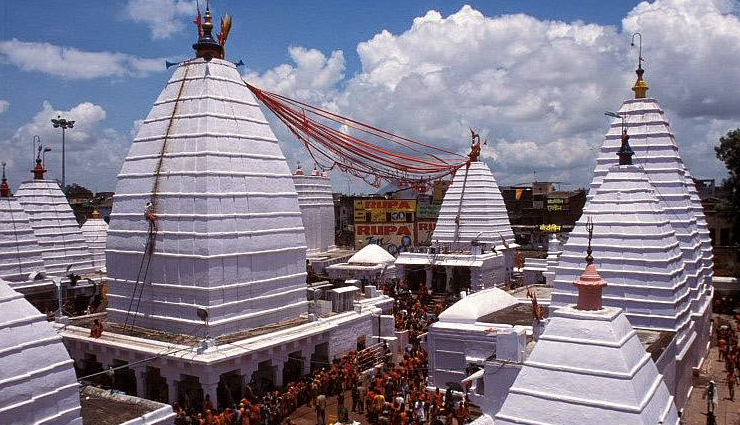
# Vaidyanath Temple, Deoghar, Jharkhand
The Vaidyanath Jyotirlinga is alternatively referred to as Baba Dham or Baidyanath Dham. According to beliefs, Ravana, the antagonist in the epic Ramayana, worshiped Lord Shiva at this sacred site and performed rituals offering the sacred water of the Ganga. The temple is also known by the name Kama Lingam, signifying the deity as a wish-fulfiller.
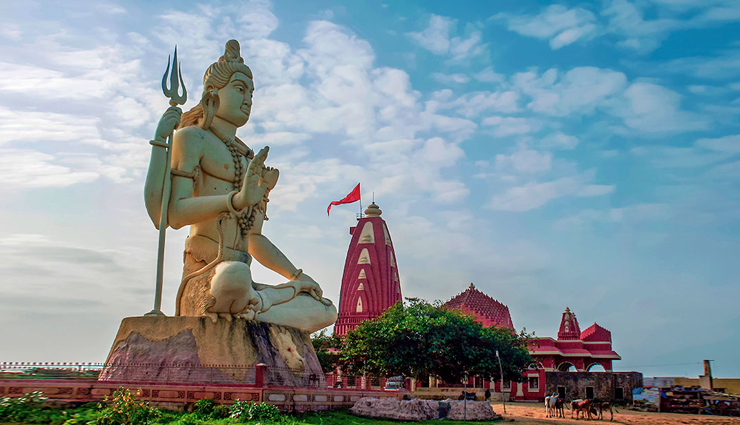
# Nageshwar, Dwarka, Gujarat
The Nageshwar Temple is considered the inaugural jyotirlinga of Lord Shiva on Earth. One cannot fail to notice the striking 25-meter-tall statue of Lord Shiva at this site. The jyotirlinga within, known as Nageshwar Mahadeva, draws a considerable number of pilgrims who come to offer their prayers to the divine. Worshipping Nagnath or Nageshwar Mahadev, both manifestations of Lord Shiva, is believed to grant liberation from poison. Situated on an island along the Saurashtra coast, the temple holds a significant spiritual presence.
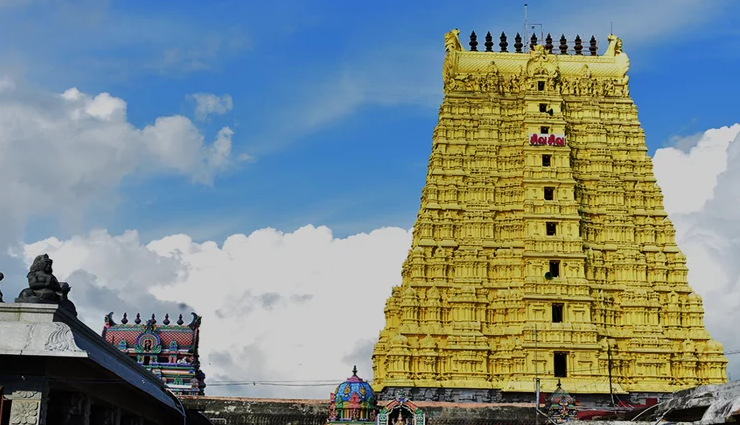
# Ramanathaswamy Temple, Tamil Nadu
The Ramanasthaswamy Jyotirlinga traces its origins to a period predating the 12th century, and it underwent expansion by the Pandya Dynasty during that time. Among all the temples in India, the Ramanathaswamy Temple boasts the lengthiest corridor. Situated in the island town of Rameshwaram, it holds sanctity not only for the followers of Lord Shiva (Shaivites) but also for the adherents of Lord Vishnu (Vaishnavites) and followers of Panchayatna (Smarthas).





